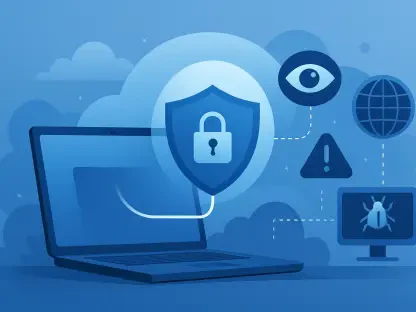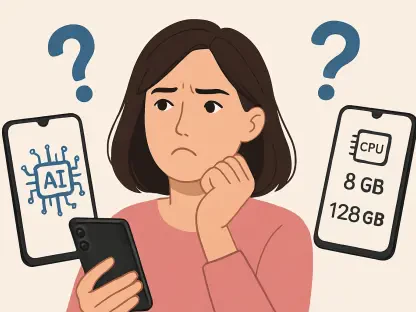Open source projects and products have the potential to significantly transform local government services by reducing costs and increasing flexibility. A prominent example of a thriving open source initiative is LocalGov Drupal. However, not all open source projects are suitable for councils, so critical factors must be assessed when considering such solutions. This article explores the key considerations for councils when adopting open source software and how to maximize the benefits of digital transformation in local government.
1. Community Involvement
Successful open source software generally thrives on the support of a large, active, and diverse community of users and developers. To gauge the viability of open source software, councils should evaluate the number of active users, the contributing organizations, and the frequency of meetups or events. For instance, LocalGov Drupal boasts over 50 contributing councils and 25 suppliers. The community consistently engages in regular meetings, and their Slack channel, with roughly 800 users, serves as a hub for updates and solutions to common issues. This strong community involvement mirrors the success of open source software, providing a foundation for robust support and continuous improvement.
2. Development Standards
Adherence to good development standards is pivotal, particularly when sharing code across multiple organizations. This encompasses coding standards, clear commit messages, and comprehensive documentation. Defined development standards ensure that everyone involved can understand and contribute to the project effectively. LocalGov Drupal leverages two decades of Drupal’s best practices, simplifying the process for new developers to comprehend and extend the codebase. Such established standards improve the overall quality and reliability of the software, making it easier to build upon and maintain over time.
3. Security Measures
Security is a paramount concern for any software, and open source solutions are often considered more secure than proprietary alternatives due to the public visibility of the code. This visibility encourages more frequent security scans and a larger pool of eyes to identify vulnerabilities. Councils should inquire about the presence of a dedicated security team, the process for reporting security issues, and the frequency of security updates. LocalGov Drupal adheres to Drupal’s security advisory policy, ensuring regular security updates and a clear severity rating system to help developers prioritize and address vulnerabilities promptly.
4. System Integrations
The ability of new software to integrate seamlessly with existing systems is a critical consideration for councils. Evaluating whether the software offers open APIs for data exchange is essential. LocalGov Drupal demonstrates a proactive approach by collaborating with Netcall on integrations for low-code products, creating seamless content design processes. Additionally, partnerships with GovMetric and Bookinglab further enhance the interconnectedness of various tools. By facilitating easy integration, open source solutions can streamline workflows and foster a cohesive digital ecosystem within local government operations.
5. Documentation Quality
Effective documentation is a cornerstone of successful open source projects. It should clearly explain the software’s capabilities and usage, serving the needs of diverse audiences including end users, developers, and decision-makers. Regular updates and robust content are crucial to keeping documentation accurate and valuable. LocalGov Drupal excels in this area with a dedicated documentation site, detailed README.md files, a YouTube channel, and an active Slack community. This comprehensive approach to documentation ensures that all stakeholders have access to the necessary information, fostering better understanding and broader adoption of the software.
6. Support Availability
The traditional support model may not always apply to open source products, so support often comes from the community of users and developers. Councils need to assess the available support channels, including community forums, direct assistance from suppliers, or any other structured support mechanisms. LocalGov Drupal is an exemplary case, featuring continuous support from its core team, councils, and suppliers to address questions and resolve bugs. This community-driven support model provides timely and practical assistance, crucial for maintaining the smooth functioning of the software and enhancing user experience.
7. Accessibility Compliance
Ensuring accessibility is a legal and ethical requirement for local government websites. Beyond just front-end compliance with WCAG standards, the back end should also be accessible to create an inclusive work environment. LocalGov Drupal addresses this with the localgov_sa11y feature, offering immediate feedback on content and distribution accessibility. This commitment to accessibility ensures that all users, regardless of their abilities, can effectively use and benefit from the software. Achieving comprehensive accessibility aligns with broader goals of inclusivity and usability in public services.
8. Contribute to the Project
Councils can significantly benefit from contributing code back to open source projects. This not only strengthens the software for all users but also ensures that customizations are peer-reviewed, covered by security policies, and available for others to enhance. Contributions can also include product testing and road mapping, driving collaborative development. For example, councils contributing to LocalGov Drupal have seen tangible benefits, such as new election functionality funded by Essex County Council and created for Hammersmith & Fulham Council. This collaborative spirit fosters continuous improvement and innovation in open source initiatives.
9. Adhere to Open Source Development Principles
To maximize the effectiveness of open source software, councils should follow principles of open, modular, flexible, and iterative development. This involves building new features with generic naming, shared functionality, and adherence to good coding standards from the outset. Sharing and developing in the open ensures peer-reviewed code that enhances quality and prevents future rework. The LocalGov Drupal community exemplifies this approach, encouraging modular development and open sharing of features like the Alert Banner module, which can be utilized across various systems without dependencies.
10. Utilize Open Standards
Open standards such as HTML5, CSS, and JSON are vital for ensuring interoperability and avoiding vendor lock-in, a crucial consideration for public sector organizations. LocalGov Drupal’s use of the Open Referral UK standard for community service listings exemplifies the benefits of open standards. This approach supports seamless data sharing and system integration, providing flexibility and fostering a more cohesive digital ecosystem. Utilizing open standards ensures that digital solutions remain adaptable and sustainable over the long term, aligning with the evolving needs of local governments.
11. Ensure Transferability
Solutions and licenses that are transferable across the public sector benefit all parties involved. LocalGov Drupal’s distribution, designed to be shareable among UK councils, exemplifies this principle. Licensing under GPL2 ensures that any modifications remain open and transferable, enabling other councils and organizations to adopt and adapt the software. Similar initiatives in other regions, such as Italy’s Design System .italia, provide guidance for public digital interfaces. These transferable solutions encourage wider adoption and collective improvement, fostering a collaborative approach to public sector digital transformation.
12. Select Long-Term Value Solutions
When considering procurement decisions, councils should weigh open source solutions against proprietary software, evaluating the total lifetime cost of ownership. This includes factors like customization, functionality extension, support, hosting, security, and training. Open source solutions often offer better long-term value and flexibility. For instance, LocalGov Drupal’s implementation costs can vary based on council requirements, with options for low-cost re-platforming and higher investments for content transformation. By considering long-term value, councils can ensure cost-effective and sustainable digital solutions.
13. Choose Appropriate Projects
Adopting open source projects with clear, approved licenses mitigates legal and operational risks. LocalGov Drupal operates under the GPL-2.0 license, approved by the Open Source Initiative, guaranteeing councils the freedom to use, modify, and share the software. This transparency and adherence to licensing standards protect councils from potential legal issues and ensure that the software remains adaptable and open. Choosing appropriately licensed projects is essential to safeguarding the interests of local governments and ensuring the sustainability of their digital initiatives.
14. Engage with the Community
Open source projects and products offer a tremendous opportunity to revolutionize local government services by cutting costs and enhancing flexibility. Among the many successful open source initiatives, LocalGov Drupal stands out as a noteworthy example. However, it’s important to understand that not all open source projects are suitable for local government use. Therefore, it’s crucial for councils to meticulously evaluate several key factors when considering such solutions.
This article delves into the primary considerations that councils should keep in mind when embracing open source software. Factors such as compatibility with existing systems, community support, security concerns, and the ability to customize software to suit specific needs are paramount in the decision-making process. By thoroughly assessing these aspects, councils can more effectively harness the potential of digital transformation. Ultimately, the goal is to ensure that the adoption of open source solutions not only modernizes local government services but also delivers maximum value, efficiency, and responsiveness to the community.









